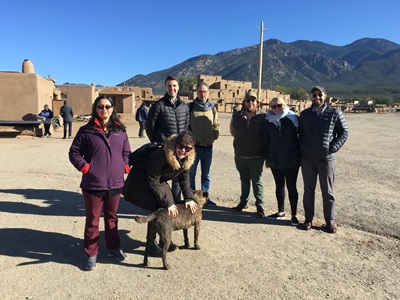Global Environmental Borderlands in the Age of Empire
A symposium sponsored by the William P. Clements Center for Southwest Studies at SMU, co-organized by Robert Batchelor, David Bello, and Ryan Jones

Presenters and their paper titles included: Robert Batchelor (Georgia Southern University), Ocean Currents as Borderlands: The Case of the Western Pacific; David Bello (Washington & Lee University), Qing Imperial Pastoralism in Trans-Grassland Practice; Purnima Dhavan (University of Washington), Crafting a New Paradise: Imperial Power and Sufi Mediation in Mughal Kashmir; Blake Earle (Texas A&M-Galveston), Fisheries and Environmental Administration Along the Fringes of Empire: The United States and Great Britain in the North Atlantic; Jarrod Hore (Macquarie University), Underworlds and Borderlands: Colonial Geology in the Pacific World; Ryan Jones (University of Oregon), Whales, Russians, Tungus, and Americans: The Sea of Okhotsk’s Living Oceanic Borderland; Martin Kalb (Bridgewater College), Namibia’s Beaches as a Colonial Environmental Borderland; Nathaniel Millet (Saint Louis University), Native People and the Caribbean Environment: c. 1550-1850; Ruth Morgan (Monash University), Camels in the Australian Desert: A More than Human History of Water and Settler Colonialism; and Kathryn Olivarius (Stanford University), Immunocapitalism: Epidemiology and Empire in the American South.